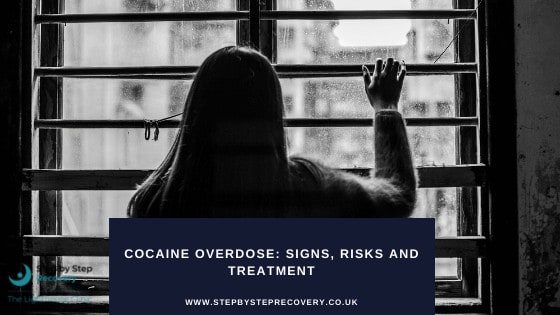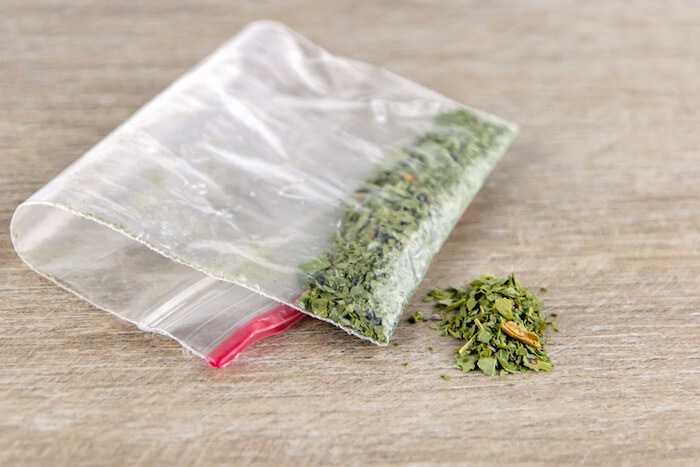Updated December 2022
Many people mistakenly believe that an overdose means falling unconscious as a result of taking too much of a particular substance. However, in truth, the overdose symptoms aren’t always this obvious. As a result, some of the effects are often dismissed or missed completely.
Failing to identify a cocaine overdose can be fatal if treatment is delayed. Familiarising yourself with the lesser-known overdose symptoms is extremely important and may even save a life.
What Causes Cocaine Overdose?
A cocaine overdose occurs most often during a binge. A binge involves consuming a large amount of drugs within a short time. When you use cocaine in large amounts, your body cannot metabolise it fast enough.
This results in a build-up of dangerous toxins, ultimately sending the central nervous system (CNS) into overdrive. At this stage, overdose symptoms include an increase in blood pressure, breathing, heart and temperature.
Common Overdose Symptoms of Cocaine
Overdose symptoms of cocaine will vary from person to person. This is because the body’s reaction to cocaine will depend on several different factors, such as age, weight, gender and overall health. Someone with underlying health conditions will ultimately be at greater risk of suffering from a cocaine overdose.
The chances of a cocaine overdose will also increase based on the method of use. For example, injecting cocaine directly into the bloodstream means it crosses the blood/brain barrier much faster, giving a more intense high but ultimately putting you at a greater risk of overdose.
Similarly, mixing cocaine with other substances, particularly sedatives such as alcohol or heroin, also increases the chance of a fatal overdose. As well as physical symptoms, there are also psychological indicators that may indicate an overdose.
Nine common physical symptoms include:
- Increase in heart rate
- A rise in body temperature
- Nausea and vomiting
- Chest pain
- Trouble breathing
- Tremors
- Heart attack
- Seizures
- Stroke.
In some cases, overdose can be more difficult to recognise, and being aware of psychological signs and physical symptoms can be helpful.
Four psychological symptoms include:
- Paranoia
- Panic attacks
- Anxiety or extreme agitation
- Delirium and hallucinations.
What to Do If You, or Someone You Know, Is Showing Overdose Symptoms
Overdose can happen the very first time cocaine is used. It’s important to understand you don’t have to be a cocaine addict to be at risk of an overdose. Every time you take cocaine, you are at risk of suffering an overdose. If you experience any of the symptoms above, you should call 999 immediately.
The operator may try and keep you on the phone until the ambulance arrives. If you’re with someone who is displaying overdose symptoms of cocaine use, they may give you instructions on what to do before help arrives.
Five key things to do if you are concerned about overdose symptoms are:
- Try to keep a person talking and awake if they are showing overdose symptoms.
- Turn them on their side just in case they throw up or have a seizure.
- Use a cold compress to prevent overheating.
- If you or the person you are with feels cold, don’t continue trying to cool them down. Instead, ensure their temperature doesn’t drop too much.
- If seizures occur and then stop, you shouldn’t take this as a sign that all is well. Seizures could begin again at any point, and emergency medical attention should still be sought, even if it appears as though the initial danger has passed.
Witnessing a cocaine overdose or experiencing it yourself can be terrifying. However, you must do all you can to remain calm in this situation.
How Is Cocaine Overdose Treated?
Emergency medical care treats the potentially fatal cocaine toxicity due to the build-up of dangerous chemicals. This treatment will seek to stabilise basic functions such as:
- Respiration (breathing)
- Heart functioning
- Kidney functioning
- Body temperature.
While different medications might be used to treat a cocaine overdose, there is no specific “cure” for cocaine toxicity. Sedatives may be given to ease the physical and psychological distress of panic, hallucinations, delusions and agitation. During treatment of an overdose, medics work to prevent serious brain damage or death from occurring as a result of hyperthermia symptoms, or abnormal cardiac and circulatory functioning.
Once cocaine is cleared from the system, intensive inpatient treatment is recommended to address any underlying issues that may have contributed to drug addiction. Inpatient treatment is considered the most effective form of addiction treatment. During rehab, both the physical and psychological aspects of addiction are addressed and treated. Furthermore, residential rehab is the safest and most comfortable environment to undergo a medically supervised detox and begin your recovery journey.
We offer free advice on supporting and treating cocaine addiction. Please contact us for more information, without any pressure, about addiction treatment and our private residential rehab in Essex.




